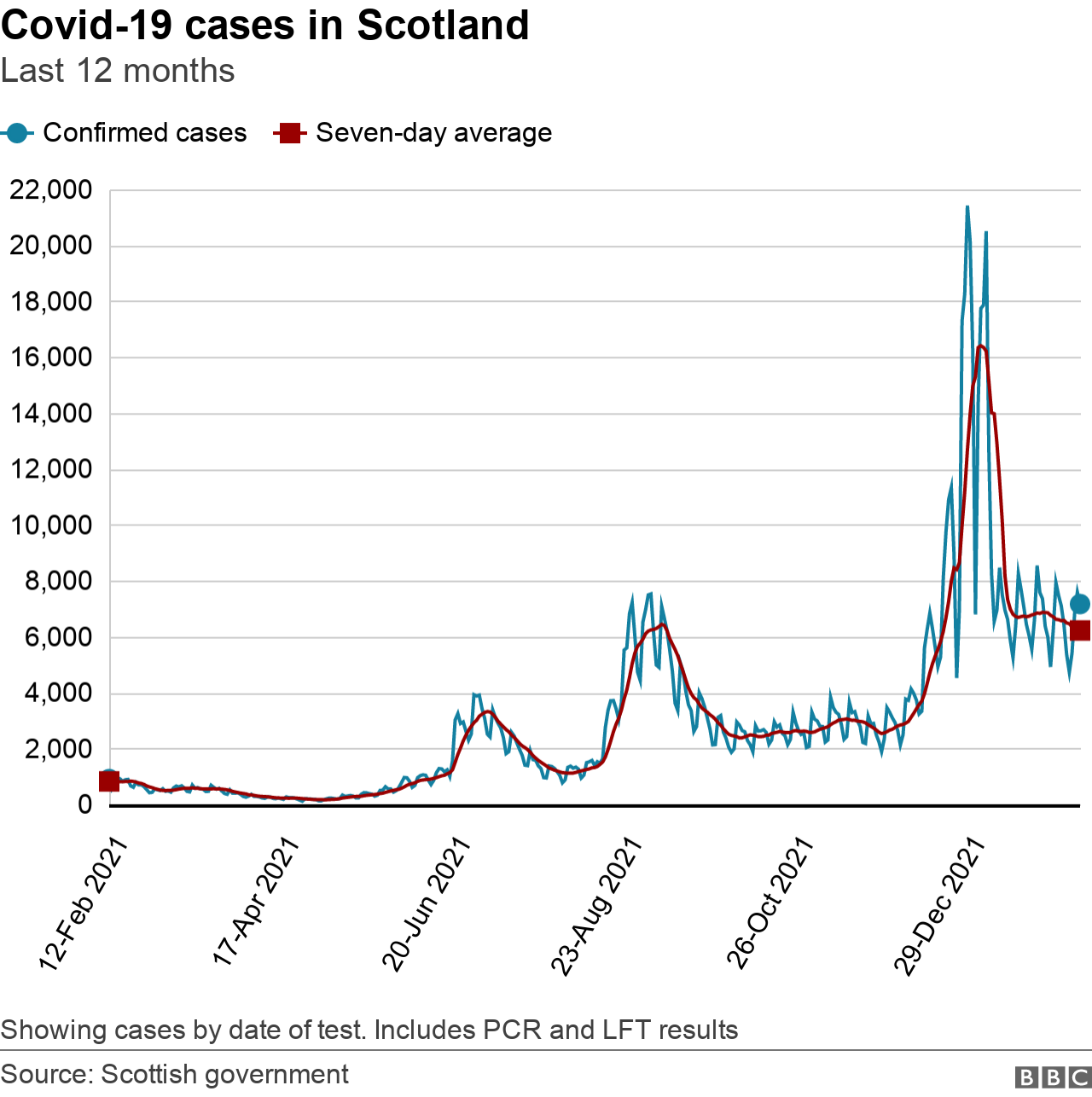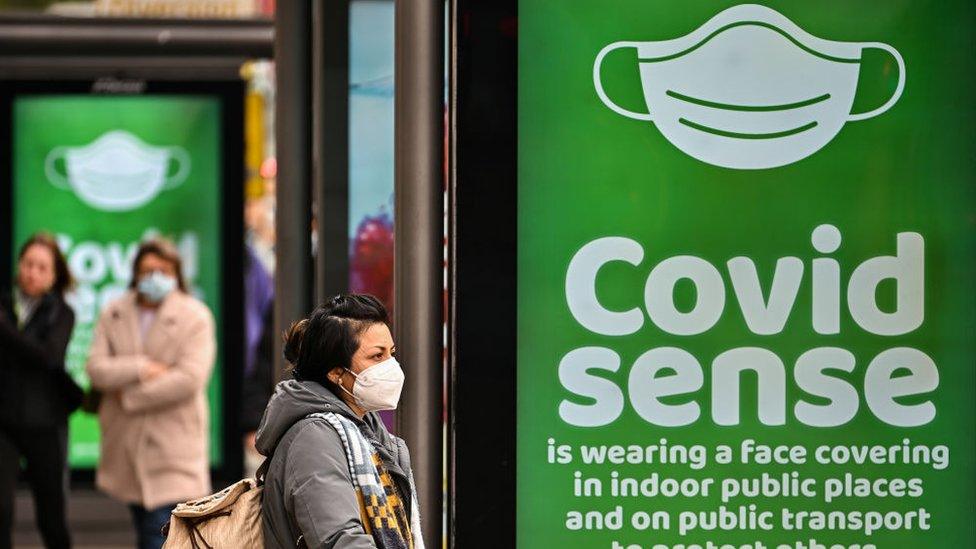Covid in Scotland: Removing self isolation would be 'step too far'
- Published

Removing the coronavirus self-isolation rules now would be a "step too far" and would risk undoing progress in tackling the virus, an expert has warned.
Jillian Evans, head of health intelligence at NHS Grampian, urged a slow and cautious move out of the existing restrictions.
Under the current rules, anyone who tests positive must self-isolate for at least five full days.
Prime Minister Boris Johnson has said that could end in England this month.
The rules remain in place in Scotland but First Minister Nicola Sturgeon has said she will publish a new strategic framework for dealing with Covid on 22 February.
Ms Sturgeon has been critical of Mr Johnson's approach and has moved to extend the powers which underpin face covering and vaccine passport rules for another six months, although though there is no suggestion they will remain in place for this long.

Ms Evans told BBC Radio's Good Morning Scotland programme that trends in the virus were still "fairly stable".
She said: "Advice from the scientific community and the WHO (World Health Organization) is when you're coming out of a peak or a spike, you do so slowly and you do so cautiously.
"I would argue at this point in time, certainly the potential of removal of self-isolation would be a step too far."
Ms Evans added: "The worst thing that could happen is that we remove things too quickly and we end up undoing a lot of the good that we've done and worked so hard for."
She also encouraged people to continue wearing face coverings indoors and in crowded spaces and to stay at home if they are unwell.
The public health expert said: "Try not to be so caught up by some of the hope and optimism that we have that this is all over, because it certainly isn't yet. Not yet."
Transmission warning
Her comments come after the UK government's Scientific Advisory Group for Emergencies (SAGE) warned that a change in public behaviour could lead to an upturn in cases, especially due to the growth of the BA.2 Omicron sub-variant.
The minutes , externalof its meeting on Friday said "there is significant potential for transmission to increase if behaviours revert rapidly to pre-pandemic norms and mitigations are removed".
SAGE also warned: "There is no reason why future dominant variants should be similarly or less severe than Omicron, which may be an exception in having lower severity.
"The next dominant variant in the UK (and internationally) could have similar pathogenicity to previous variants, such as Delta."
'We're not out of it yet'
Meanwhile, University of Edinburgh public health expert Prof Linda Bauld said opinion surveys suggest about a quarter of people are still worried about the immediate threat from the virus
She told BBC Breakfast: "Let's not forget we still have around 12,000 people in hospital [UK-wide] with this disease - it certainly has not gone away - and cases in the ONS infection survey, the prevalence survey, have gone up slightly over the last week. We're not out of it yet.
"However, the governments around the UK are looking ahead and saying how do you plan for a more sustainable future and that means they are balancing out different risks - the risk from the virus to individuals, the risk to the health service but they are also thinking about the educational, social and economic impacts.
"I think you can't keep things in place indefinitely when the situation is stabilising."
Prof Bauld said the Joint Committee on Vaccination and Immunisation was not yet recommending a fourth vaccine for the wider population but added she could envisage boosters being offered to vulnerable groups in the autumn.


- Published14 January 2022

- Published13 January 2023

- Published1 July 2022
